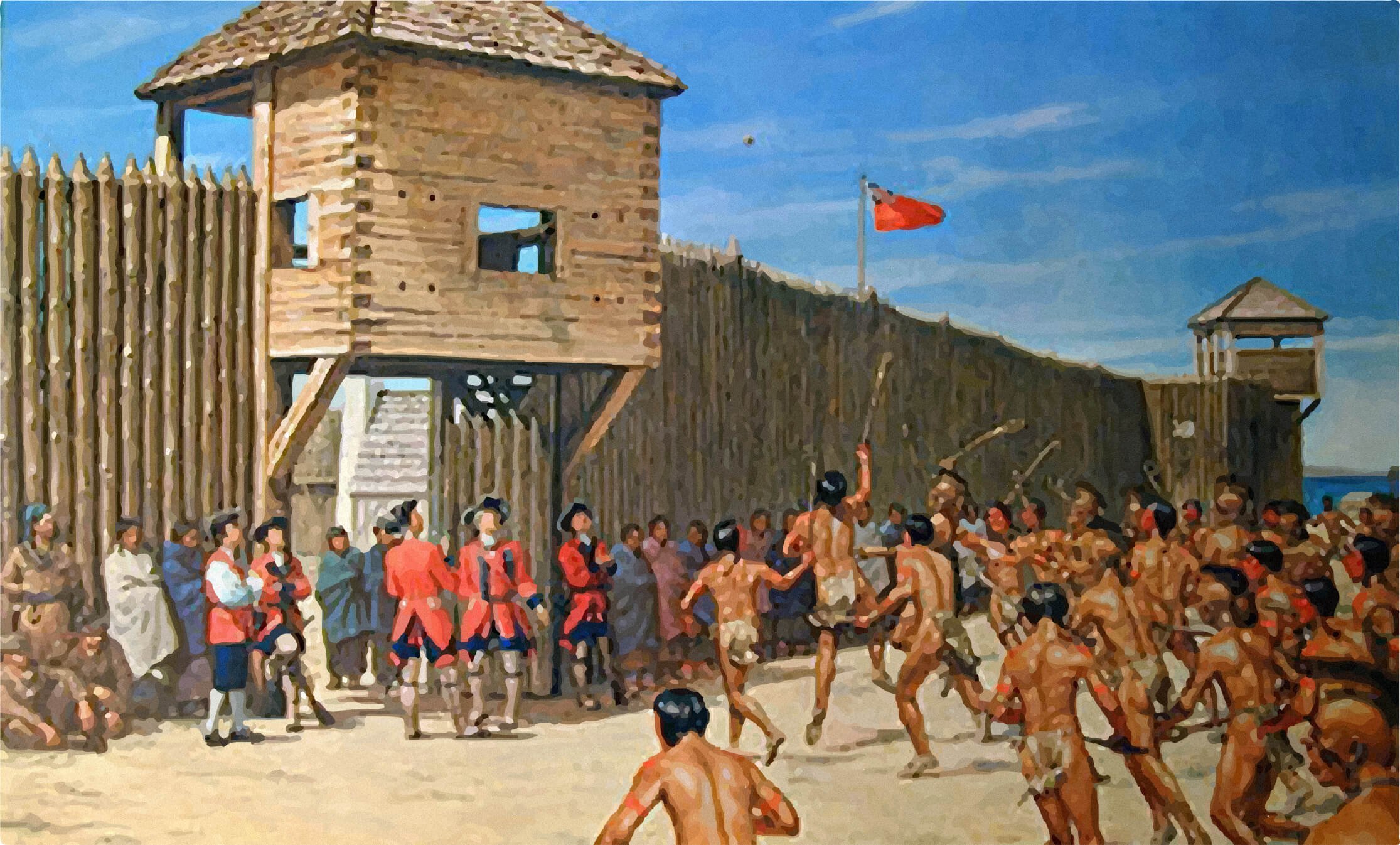In 1763, the French and Indian War ended with Great Britain victorious. France was forced to cede New France (Canada) to the British. Most of the Indian tribes sided with the French because of their fur trade relationship and because clearly the British colonists were a bigger threat to Indian lands than the much sparser French colonists. The British government knew there would be trouble if its colonists continued to push into the interior. It promised the Indians this would not happen. Psyche! Not only did the British do diddly about white settlement, but Gen. Amherst restricted the sale of gunpowder to the Indians. This plus the British being asses caused the Indians to plan a rebellion. The rebellion was led by the Ottowa chief Pontiac and the subsequent conflict is known as Pontiac’s War. The war began on May 6, 1763 with the besieging of Fort Detroit, but other Indians attacked other forts. An important fort in Michigan was Fort Michilimackinac. The fort was the site of trading between Indians and French Canadian fur traders. On June 4, warriors from the Ojibwe and Sauk tribes were celebrating King George III’s birthday by playing a game called baggataway (a forerunner of lacrosse). 500 warriors were playing outside the fort and the British soldiers were watching. Some had bets on the game. It was entertaining as the players used their sticks on each other as well as the ball. The fort’s commander Maj. George Etherington, was watching. He had been warned by French traders that there was a threat to the fort. Another clue was the brisk trade for tomahawks and knives. And it should not have taken Sherlock Holmes to figure out something was up when Indian women were watching with blankets around themselves on a hot day. Suddenly, the ball went through the open gates of the fort. The players raced after it while others ran to the women to get arms they were hiding in their blankets. Let the slaughter begin! None of the British soldiers had their guns so it was very one-sided. Ironically, the idiot major was one of the few to survive, having been captured and later exchanged. It was a nice little victory for the Native Americans, but it made no difference in the long run. Still, it made for a great story to tell around the campfire.
https://mynorth.com/2014/05/deadly-lacrosse-game-in-mackinac-straits-at-fort-michilimackinac-in-1763/
https://buymichigannow.com/blog/the-most-unbelievable-true-story-of-pontiacs-rebellion/

0 Comments